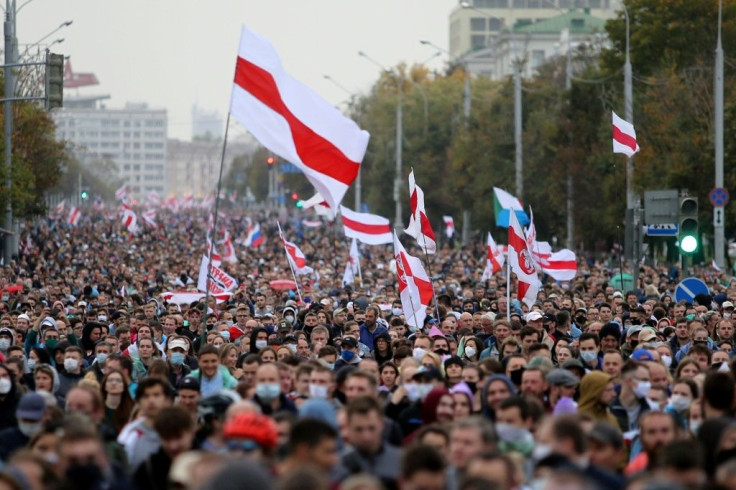Belarus, Iran, US, Nicaragua Activists Win 'Alternate' Nobel
A Belarusian pro-democracy campaigner, an imprisoned Iranian human rights lawyer, a US civil rights attorney, and a Nicaraguan activist on Thursday won a top Swedish honour sometimes called "the alternative Nobel Prize.
Ales Bialiatski of Belarus and his NGO Viasna, Nasrin Sotoudeh of Iran, Bryan Stevenson of the United States and indigenous rights and environmental activist Lottie Cunningham Wren of Nicaragua share the Right Livelihood Award.
Ole von Uexkull, Executive Director of the Right Livelihood Foundation, said this year's laureates were united in their "fight for equality, democracy, justice and freedom."
"Defying unjust legal systems and dictatorial political regimes, they successfully strengthen human rights, empower civil societies and denounce institutional abuses," von Uexkull said in a statement.
Bialiatski and Viasna were awarded "for their resolute struggle for the realisation of democracy and human rights in Belarus."
Viasna, which translates to Spring, was founded by Bialiatski in 1996 in response to the repression of demonstrations by the government of president Alexander Lukashenko.
Following the disputed re-election of Lukashenko this year, Belarus is once again seeing widespread protests, with calls for his resignation amid accusations of a rigged vote.
Over the past month riot police have detained thousands of protesters who have allegedly been tortured and abused in custody, prompting international condemnation and proposed EU sanctions.

Human rights lawyer Nasrin Sotoudeh was in turn selected "for her fearless activism, at great personal risk, to promote political freedoms and human rights in Iran."
Sotoudeh, who is currently serving a 12-year sentence after she defended women arrested for protesting compulsory hijab laws, rose to prominence when she represented dissidents arrested during mass protests in 2009 against the disputed re-election of the ultra-conservative president Mahmoud Ahmadinejad.
US civil rights lawyer Bryan Stevenson was honoured "for his inspiring endeavour to reform the US criminal justice system and advance racial reconciliation in the face of historic trauma."
The death of George Floyd in police custody in the US state of Minnesota in May triggered nationwide protests that have drawn the world's attention to the disproportionate number of black people killed and jailed in the US criminal justice system.
The fourth laureate, Lottie Cunningham Wren, was highlighted "for her ceaseless dedication to the protection of indigenous lands and communities from exploitation and plunder."
The Right Livelihood Award was created in 1980 by Swedish-German philatelist Jakob von Uexkull after the Nobel Foundation behind the Nobel Prizes refused to create awards honouring efforts in the fields of the environment and international development.
The award consists of a cash prize of one million Swedish kronor ($111,000 or 95,000 euro) for each laureate, meant to support the recipient's work.
© Copyright AFP 2024. All rights reserved.





















